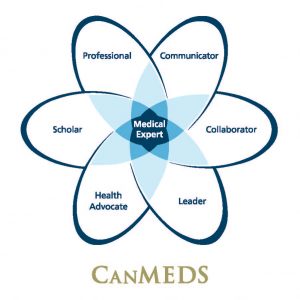So You Think You Can Doctor
While you are in high school there are activities you can take part in and habits you can develop that will help you along your path to medicine….
Get Involved with Your Community
Volunteer and work experiences will help you develop important skills in life to “help you adult”, but will also help you become a great doctor someday.

- Create a portfolio of experiences, keep track of what you have done, where you did it, and record the name, phone, and email of a person who can verify that you participated in that activity (see example form below)
- Getting involved in your community through cultural, sport, and/or arts organizations will give you insights into and understanding of the circumstances and health issues of the people you will serve as a doctor in the future. Community engagement is a key feature of the NOSM medical school program
- Volunteer and work experiences are equally valuable
- Take every opportunity you can to take a leadership role so that you can learn how to make good decisions in real life circumstances
As part of medical school applications you are required to complete an auto-biographical sketch (ABS), where you list activities and experiences you have been involved in since the age of sixteen (16). Below you will find an example of a form you can use to track these activities.
Study Hard

- Form good study skills
- Make use of your teachers and guidance offices to ensure that you are taking advantage of every opportunity your school has to offer you
- Have fun while you study to avoid burn-out – a balanced lifestyle is key to academic success
- When you are deciding what courses to take in high school, choose courses that give you options – be well-rounded in your course selection.
- When choosing a university degree, choose something you are good at AND that you enjoy. Research shows that sutdents perform at a higher level when they are interested and passionate about what they are learning
Live a Balanced Life

- Having hobbies and interests outside of academics
- Being active and considering your health so you have the energy you need to do all the things you want to do
- Ensuring that you make time for friends and family – those supports will be key for your future success as a medical student and doctor
Attend CampMed
Open to students going into grades 10 and 11 in the fall and who live in Northern Ontario and other rural and remote areas of Canada, CampMed is an annual summer camp hosted by NOSM on the Lakehead University campus in Thunder Bay and on the Laurentian University campus in Sudbury.
Formerly known as NOSM’s Health Sciences Summer Camp, CampMed features new branding and a renewed focus on four core learning areas: Interprofessional, Leadership, Cultural, and Clinical Skills
Below are examples of some of the activities and skills that campers have the opportunity to experience at CampMed.
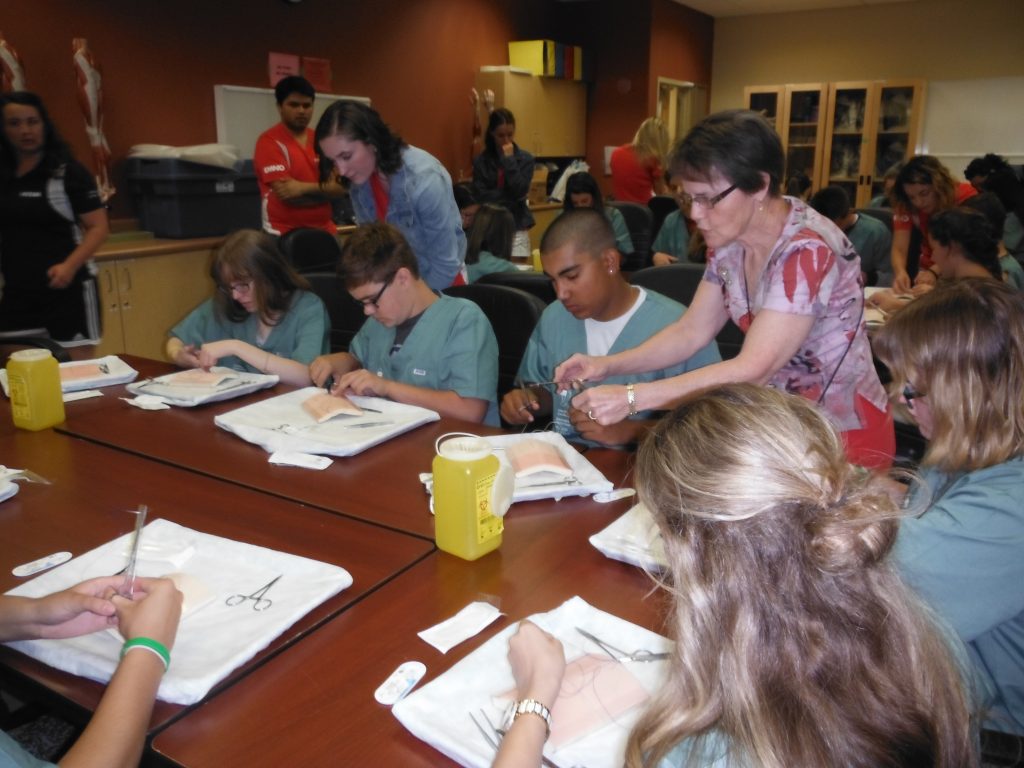
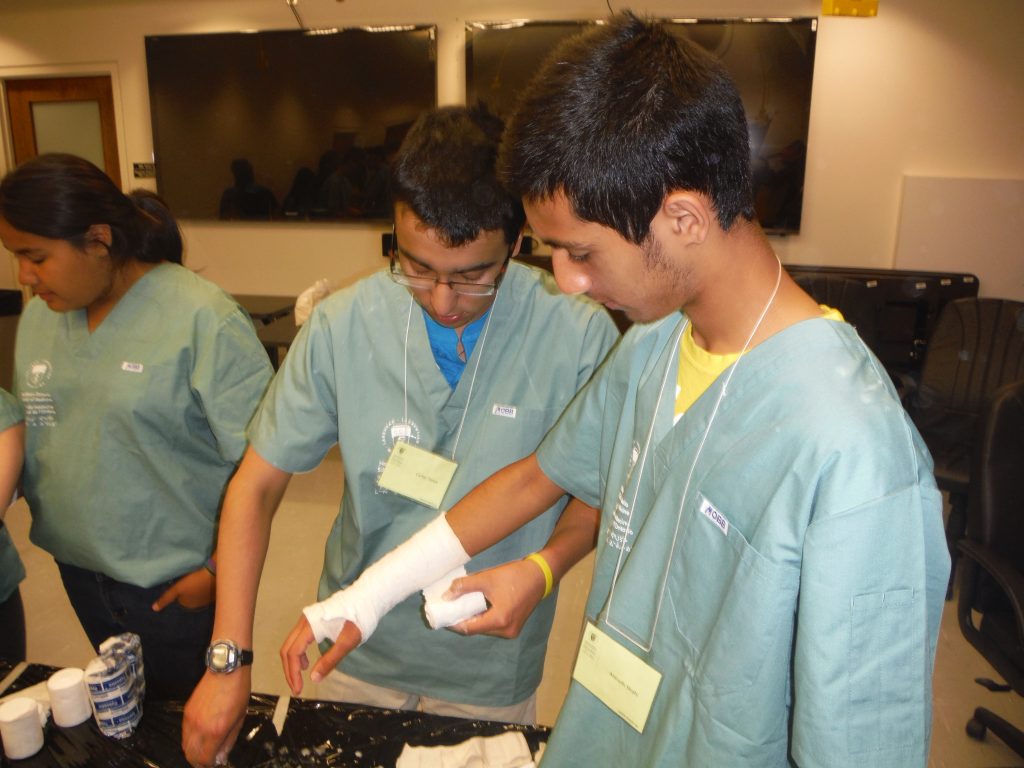
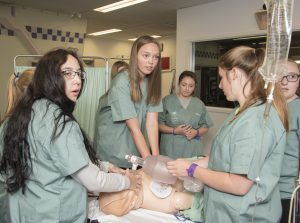
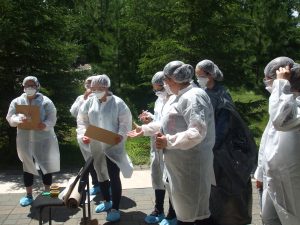
For more information on CampMed, including photo galleries from previous camps, dates, deadlines, and application forms visit the CampMed webpage.
The Royal College of Physicians and Surgeons of Canada has created a framework that identifies and describes the abilities required by doctors to effectively meet the health-care needs of the people they serve. This framework of abilities is called the CanMEDS Roles.
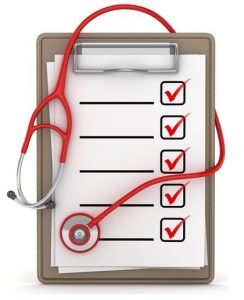
STEP 1: Read through the roles and get familiar with them
STEP 2: Think about what roles you need to get more experience in to develop those skills
STEP 3: Plan to work, volunteer, and/or get involved in your community in a capacity that will help you develop the skills you have identified as needing development
Communicator
As Communicators, physicians form relationships with patients and their families* that facilitate the gathering and sharing of essential information for effective health care.†¹
†Note that the Communicator Role describes the abilities related to a physician-patient encounter. Other communication skills are found elsewhere in the framework, including health care team communication (Collaborator) and academic presentations (Scholar).
¹Neville A, Weston W, Martin D, Samson L, Feldman P, Wallace G, Jamoulle O, François J, Lussier M-T, Dojeiji S. Communicator. In: Frank JR, Snell L, Sherbino J, editors. CanMEDS 2015 Physician Competency Framework. Ottawa: Royal College of Physicians and Surgeons of Canada; 2015.
Collaborator
¹Richardson D, Calder L, Dean H, Glover Takahashi S, Lebel P, Maniate J, Martin D, Nasmith L, Newton C, Steinert Y. Collaborator. In: Frank JR, Snell L, Sherbino J, editors. CanMEDS 2015 Physician Competency Framework. Ottawa: Royal College of Physicians and Surgeons of Canada; 2015.
Leader
¹Dath D, Chan M-K, Anderson G, Burke A, Razack S, Lieff S, Moineau G, Chiu A, Ellison P. Leader. In: Frank JR, Snell L, Sherbino J, editors. CanMEDS 2015 Physician Competency Framework. Ottawa: Royal College of Physicians and Surgeons of Canada; 2015.
Health Advocate
¹Sherbino J, Bonnycastle D, Côté B, Flynn L, Hunter A, Ince-Cushman D, Konkin J, Oandasan I, Regehr G, Richardson D, Zigby J. Health Advocate. In: Frank JR, Snell L, Sherbino J, editors. CanMEDS 2015 Physician Competency Framework. Ottawa: Royal College of Physicians and Surgeons of Canada; 2015.
Scholar
¹Richardson D, Oswald A, Chan M-K, Lang ES, Harvey BJ, editors. Scholar. In: Frank JR, Snell L, Sherbino J, editors. CanMEDS 2015 Physician Competency Framework. Ottawa: Royal College of Physicians and Surgeons of Canada; 2015.
Professional
¹Snell L, Flynn L, Pauls M, Kearney R, Warren A, Sternszus R, Cruess R, Cruess S, Hatala R, Dupré M, Bukowskyj M, Edwards S, Cohen J, Chakravarti A, Nickelle L, WRight J. Professional. In: Frank JR, Snell L, Sherbino J, editors. CanMEDS 2015 Physician Competency Framework. Ottawa: Royal College of Physicians and Surgeons of Canada; 2015.
*Throughout the CanMEDS 2015 Framework and Milestones Guide, references to the patient’s family are intended to include all those who are personally significant to the patient and are concerned with his or her care, including, according to the patient’s circumstances, family members, partners, caregivers, legal guardian, and substitute decision-makers.
For more information about the CanMEDS Framework visit the Royal College of Physicians and Surgeons of Canada CanMEDS webpage.
Copyright © 2015 The Royal College of Physicians and Surgeons of Canada. Reproduced with permission.
Back to High School Students


